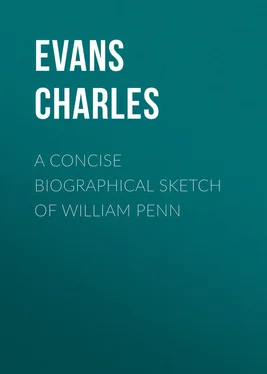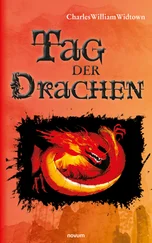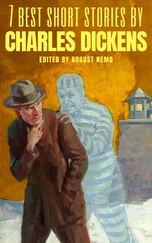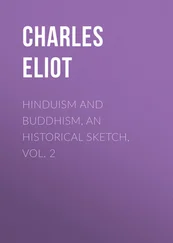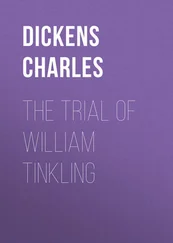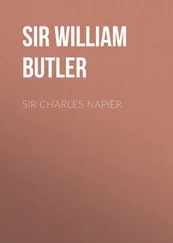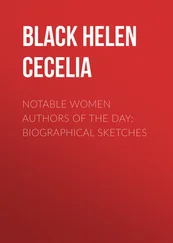Charles Evans - A Concise Biographical Sketch of William Penn
Здесь есть возможность читать онлайн «Charles Evans - A Concise Biographical Sketch of William Penn» — ознакомительный отрывок электронной книги совершенно бесплатно, а после прочтения отрывка купить полную версию. В некоторых случаях можно слушать аудио, скачать через торрент в формате fb2 и присутствует краткое содержание. Жанр: foreign_antique, foreign_prose, на английском языке. Описание произведения, (предисловие) а так же отзывы посетителей доступны на портале библиотеки ЛибКат.
- Название:A Concise Biographical Sketch of William Penn
- Автор:
- Жанр:
- Год:неизвестен
- ISBN:нет данных
- Рейтинг книги:5 / 5. Голосов: 1
-
Избранное:Добавить в избранное
- Отзывы:
-
Ваша оценка:
- 100
- 1
- 2
- 3
- 4
- 5
A Concise Biographical Sketch of William Penn: краткое содержание, описание и аннотация
Предлагаем к чтению аннотацию, описание, краткое содержание или предисловие (зависит от того, что написал сам автор книги «A Concise Biographical Sketch of William Penn»). Если вы не нашли необходимую информацию о книге — напишите в комментариях, мы постараемся отыскать её.
A Concise Biographical Sketch of William Penn — читать онлайн ознакомительный отрывок
Ниже представлен текст книги, разбитый по страницам. Система сохранения места последней прочитанной страницы, позволяет с удобством читать онлайн бесплатно книгу «A Concise Biographical Sketch of William Penn», без необходимости каждый раз заново искать на чём Вы остановились. Поставьте закладку, и сможете в любой момент перейти на страницу, на которой закончили чтение.
Интервал:
Закладка:
On the breaking out of the war with the Dutch, the Admiral called his son William home, where he arrived after an absence of two years. All trace of the religious seriousness and conscientious restraint that had marked his conduct and manner when he left was gone, and his father was delighted to find his son wearing the carriage and displaying the accomplishments of a self-possessed man of the world. He was at once introduced at Court, and had the opportunity to become acquainted with many who stood high in the brilliant but profligate society that filled the saloons of Whitehall.
William Penn now entered Lincoln's Inn as a student of law, and in 1665, when twenty-one years of age, there seemed every probability of his making an accomplished courtier, and a successful competitor for the honors of this world. Few could enter life with more flattering and apparently better-grounded prospects of attaining to all that would gratify a mind with strong intellectual powers, and naturally ambitious of preferment. His manly form, blooming with health, betokened physical strength and endurance. His disposition, though lively and active, was marked by docility and sweetness. He possessed ready wit, and his good mental abilities had been well developed and trained by careful culture, and strengthened by extensive and profound literary attainments. Men high in power and place smiled upon him. His father enjoyed close intimacy with the Duke of York, heir presumptive to the crown, and eagerly sought to secure for his son the glory and riches of the world, which courted his acceptance.
The Admiral having been appointed by the Duke of York to accompany him in command of the fleet, took William as one of his staff; but after a short absence the latter was sent home with a dispatch to the King. The plague was now spreading in London, and soon the whole aspect of the city was sadly changed. The awful scenes of death that were daily occurring and struck the stoutest hearts with dismay, brought to the sensitive mind of the gay young man conviction of the uncertainty of life, and warning of the necessity to prepare for its sudden termination. The Holy Spirit again broke up his false rest, showed him the emptiness of all worldly grandeur, and wooed him to follow Christ Jesus in the regeneration.
After a cruise of about two months, his father returned, flushed with success in the sanguinary contest in which he had been engaged. He found William again serious, and indisposed to continue the course upon which, but a short time before, he had exultantly entered. The increased honors and emoluments heaped on the victorious sailor by the royal brothers, made him still more fearful lest the foolish whimsies, as he thought them, of his son, would yet disappoint his hopes of the hereditary honors that might be settled upon him. Large accession to his Irish estate, derived from royal bounty as a reward for the service rendered, made it necessary that some one should look after his interest there; and having experienced the good effect, as he considered it, of placing his son within the dazzling circle of gay and fashionable life, he hurried him across the Channel, with letters of introduction to the Duke of Ormond, then Lord Deputy of Ireland.
William found the vice-regal Court comparatively free from the dissipation and loose morals of that which surrounded Charles II., and he soon seemed to enter heartily into the enjoyment it afforded. He joined an expedition sent, under the command of Lord Airan, to quell an insurrection that broke out among the garrison at Carrickfergus, and for a while was so excited by the spirit and enterprise attending active military life, that he became anxious to adopt it as a profession. But his father, when consulted on the subject, decidedly objected, and it was given up.
But He who watches over the workmanship of his hand, and seeks to save that which is lost, was not leaving William Penn to wander in the paths of folly, without the reproofs of instruction, and in mercy, by his witness in the heart, inclining him to accept those reproofs as the way to life; and it was not long before he was brought to a stand, and made to feel that he must then make his election between the life of a votary of this world and that of a self-denying disciple of a crucified Saviour.
Shangarry Castle, the newly-acquired estate of the Admiral, was near to Cork, and when not employed in bringing the place and the affairs connected with it into order, William was often in the town, where he had been well acquainted when a boy. Having one day, while there, gone into the shop of a woman Friend whom he had formerly known, to make a purchase, and finding she did not recognize him, he introduced himself, and entered into conversation with her; recalling to her recollection the meeting held by Thomas Loe at his father's house. Upon her expressing surprise at his memory of the events, he replied, he thought he would never forget them, and that, if he knew where that Friend was, he would go to hear him again, though it was a hundred miles off. She told him he need not go so far, for that Friend was now in Cork, and was to have a meeting the next day. Curious again to hear one who had arrested his attention when a boy, and seriously impressed him by his ministry, when at Oxford, he went to the meeting; and after a time Thomas Loe stood up with the expression, "There is a faith that overcomes the world, and there is a faith that is overcome by the world." It struck deep into the heart of William Penn, who was then made to feel keenly that he had been long striving against or slighting his known duty to his Maker, and allowing the world to overcome the drawing of his heavenly Father's love, to bring him out from the thraldom of sin; and as the preacher with fervid eloquence dwelt on the fruits of such faith, he was thoroughly broken down, and wept much. After the meeting he went with Thomas Loe to a Friend's house, where they had a free conversation, and from that time he became a regular attender of the meetings of Friends. As the Light of Christ shone with more and more clearness upon his soul, he saw how grievously he had departed from the right way of the Lord, and was brought under deep repentance therefor. Convinced of the truth of the doctrines held by Friends, he heartily embraced them, and firmly resolved to live and die by them, whatever sacrifices it might cost him.
Being at a meeting in Cork in 1667, he, with others, was arrested by officers who came to break the meeting up, and was sent to prison: though the Magistrate, who recognized him as the son of the lord of Shangarry Castle, offered to set him at liberty if he would give his word "to keep the peace," which he refused. From the prison he addressed a letter to the Earl of Ossory, giving an account of the arrest and imprisonment of himself and friends, showing their innocence, and pleading the liberty of conscience demanded by the precepts of the gospel. An order was immediately dispatched by the Earl for his release; and as it was soon noised abroad that Admiral Penn's son had turned Quaker, the Earl wrote to his father, communicating the information. Startled and annoyed by the intelligence, the Admiral ordered William to come home immediately, which he did. Josiah Cole, a minister in the Society of Friends, met him at Bristol; accompanied him to London, and being deeply interested for his stability and preservation, went with him to his father's house. Fully as William had adopted the principles of Friends, and many as were the baptisms he had already passed through, he had not yet adopted the plain dress that distinguished them from others; and his father observing this, and that his rapier still hung by his side, hoped that his friend the Earl had been wrongly informed; and he treated him and his friend during the evening with ordinary courtesy, without alluding to the report that had reached him.
Читать дальшеИнтервал:
Закладка:
Похожие книги на «A Concise Biographical Sketch of William Penn»
Представляем Вашему вниманию похожие книги на «A Concise Biographical Sketch of William Penn» списком для выбора. Мы отобрали схожую по названию и смыслу литературу в надежде предоставить читателям больше вариантов отыскать новые, интересные, ещё непрочитанные произведения.
Обсуждение, отзывы о книге «A Concise Biographical Sketch of William Penn» и просто собственные мнения читателей. Оставьте ваши комментарии, напишите, что Вы думаете о произведении, его смысле или главных героях. Укажите что конкретно понравилось, а что нет, и почему Вы так считаете.
